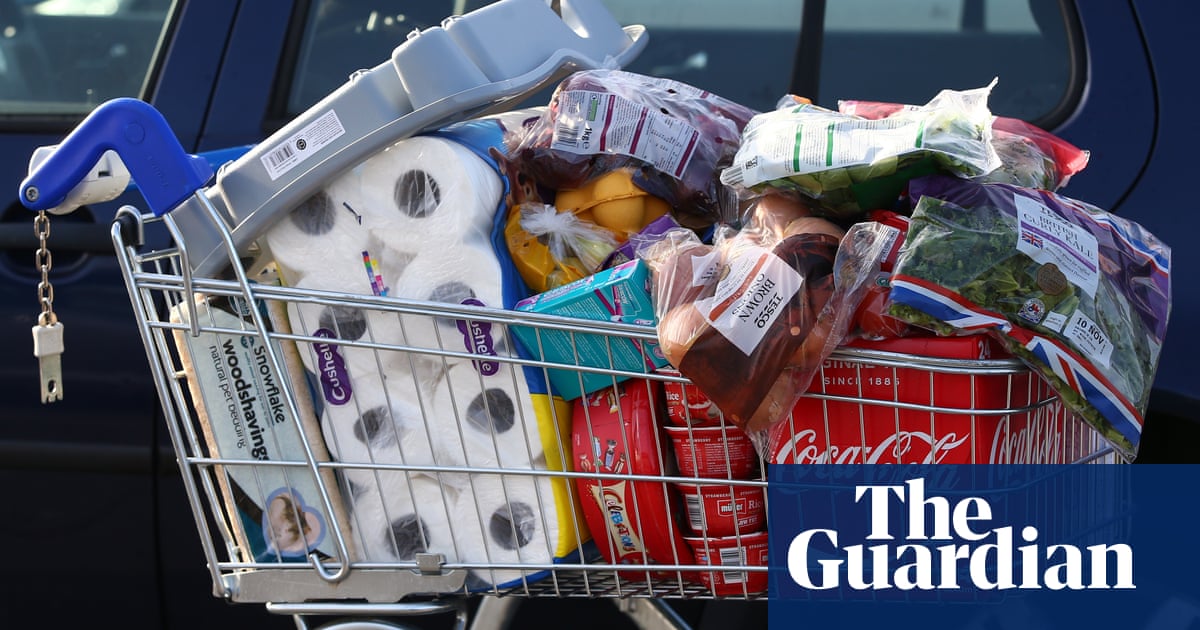
Care homes are struggling to buy food and are being prevented from purchasing in bulk by supermarkets which are not giving them the same priority as NHS workers, some have warned.
The National Care Association, which represents more than 600 small and medium-sized care homes, said some members have been unable to stock up adequately. One operator told the Guardian the latest order from their wholesaler was delivered on Wednesday with half of the items missing.
“We have stories of people being turned away from supermarkets because they are not considered key workers,” said Nadra Ahmed, the executive chairman of the industry body. Providers said choice has been cut back and residents were not getting food they necessarily liked.
The issue is part of a list of problems that care homes are facing as they brace for outbreaks of the virus, and increased demand to look after chronically ill people, to free up capacity in the NHS. Leaders are concerned about a lack of personal protective equipment, the need to train staff in “barrier nursing”, which increases hygiene levels, a lack of testing and staff shortages.
Ahmed said that in a small minority of cases, operators were warning they might not be able to continue to operate because of staff self-isolating and going off sick.
“People are making the choice not to work in this setting,” Ahmed said. “Members are starting to say they may not be able to continue to operate as a care home, because we don’t have the staff.”
She said she was contacted on Wednesday by a provider with two homes who said they were unsure how much longer they were going to be able to continue.
Small and medium-sized care homes often rely on supermarket deliveries and have not been granted any priority over members of the public or the right to buy in bulk.
“It has been a nightmare,” said Robin Hall, who runs the Home of Comfort nursing home in Hampshire. She said it was no longer possible to buy from their usual supplier, Asda, and that wholesale deliveries were very limited.
“In our previous order two-thirds of the items were missing and today half were missing,” she said. “It has meant some residents have not been able to have the food they like and we can’t offer as much choice.”
“We can’t get a Tesco delivery for love nor money,” said Andrea Pattison, owner of the St Ronans Care Home in Southsea. “Before this becomes a problem, we need to think about how we are going to secure this. If the NHS food supplies are being secured, can’t they do the same for social care?”
Pattison added: “[At one supermarket] I went to speak to customer services, said I was from a care home and asked if they had antibacterial wipes, would they allow me to buy more? They said no.”
Some managers voice hopes that supply chains for food and protective equipment will improve. The NHS is providing care homes with boxes of 300 face masks from its pandemic stock, but buying plastic aprons and antibacterial gels remains difficult.
Simon Whalley, the chairman of Birtley House Group, which operates in Surrey, said he was receiving a very large number of job applications from people whose employers have had to shut down, notably with catering, reception or housekeeping skills. He said the lack of testing of staff and patients for the presence of the coronavirus was a key issue.
“We have some 15% of our staff isolating because they or their family have shown some symptoms but these could be unrelated [to coronavirus],” he said. “We are unable to test residents who may develop symptoms either nor can we test potential new residents.”
Julie Nicholls, the manager of the Appleby Lodge care home in Cornwall, said she was “furious” that care home workers were not recognised as frontline workers.
“Care homes have received no guidance from the government,” she said. “We’ve instituted the safest practices we can but we’re not experts in the virus. We should be getting advice from the experts.”
“Care workers are playing an absolutely vital role in keeping vulnerable people safe, and they will also form a vital role so the NHS can discharge people and get beds open for others,” said Pattison. “They need to be recognised in the way NHS staff rightly are being.”












